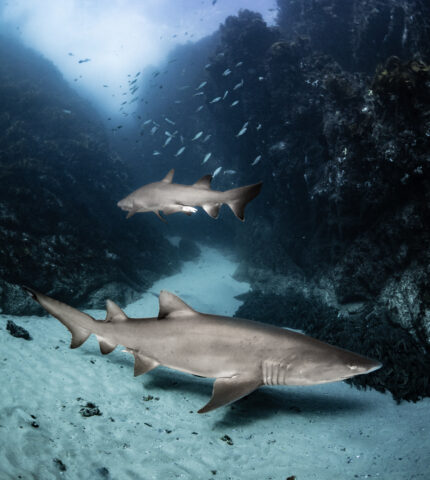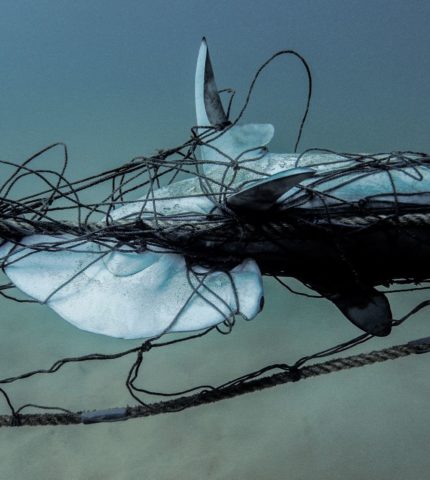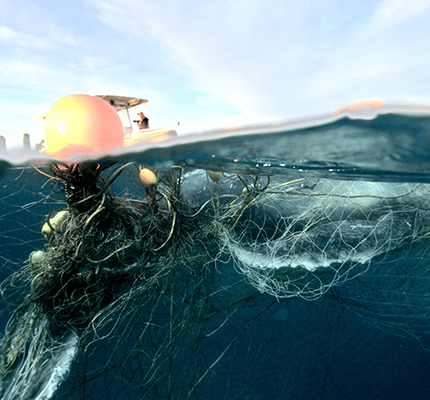The issue
The New South Wales government deploys shark nets in the summer and the Queensland governments deploys shark nets and lethal drumlines all year round. These devices are not barriers to prevent sharks getting to the beach. They are designed to catch and kill sharks. By far the majority of animals killed are harmless sharks, rays, turtles and dolphins and many are threatened with extinction. In Queensland, the shark nets commonly entangle and traumatise migrating humpback whales in the winter. The Queensland government even operates its culling program in the Great Barrier Reef – despite a successful legal challenge from Humane World.
Our solution
Shark nets and lethal drumlines do not reduce the risk of shark bite. At best they are a false sense of security – using 1930s technology based on outdated knowledge and attitudes. The dead and dying animals caught in them could even draw large sharks towards the beach.
Modern beach-safety measures such as surveillance drones, personal shark deterrents, technology-driven alert systems, and education programs are successfully operating and reducing risk at our beaches. Non-lethal SMART or Catch Alert Drumlines are used to relocate potentially dangerous sharks offshore.
The lethal shark nets and traditional drumlines are pointless, killing animals unnecessarily and should be removed.
What you can do
Humane World for Animals Australia leads the campaign to modernise beach safety and end shark culling programs. Join us and tell the New South Wales and Queensland governments that you want them to use modern beach safety measures and to stop killing wildlife at our beaches.
Take Action.
Humane World for Animals History Saving Sharks
Humane World for Animals Australia has spearheaded Australian and global protection for sharks and rays. With our nominations and advocacy Australia’s federal and state environment laws and international treaties are protecting species such as the grey nurse, white shark, whale shark, hammerhead sharks, guitar fish, manta rays and school shark to help combat unsustainable exploitation and trade. We are waiting on the assessment of our scientific nominations to give upgraded legal protection in Australia for the Maugean skate, eastern swell angelshark, grey skate, Sydney skate, greeneye spurdog, river sharks and sawfish – to name a few!
Between 2019 and 2025 Humane World Australia’s shark conservation work was generously supported by the Shark Conservation Fund.



